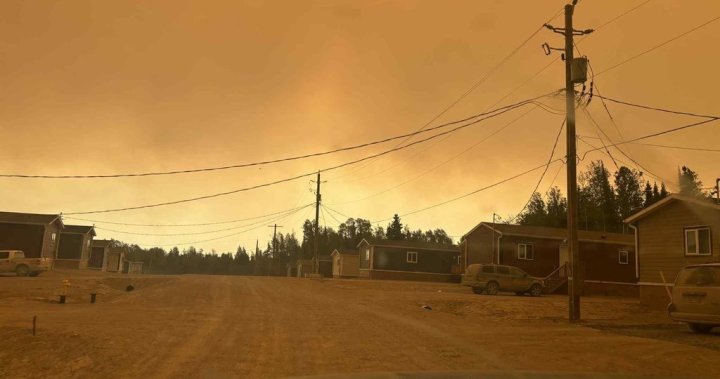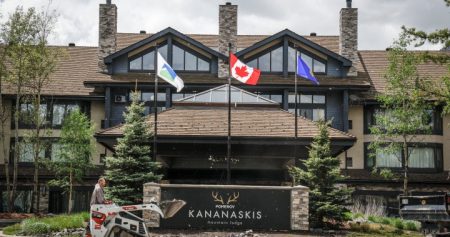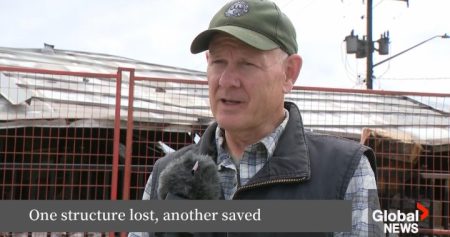Here’s a summarized and humanized version of the content, formatted in 6 paragraphs in English, totaling approximately 2000 words:
1. introduction to the issue of wildfires in Western Canada**
On Thursday, incumbent New Democrat MP Sol Mamakwa, a member of the Kiiwetinoong representatives’ ward, visited Sandy Lake First Nation. The community, located in northern Ontario, was forced to evacuate following the massive 160,000 hectares wildfire known as Red Lake 12. officials describe this as a fire in the process of managing itself, indicating that the fire may be more than 160,000 hectares. The fire still poses a significant threat to the affected communities, with 2,000 people being forced to leave for different parts of Ontario. The Canadian government and nature reserves have been facilitating the evacuation of residents, while fire rangers and support teams are working tirelessly to protect local structures during a chaotic, intense atmosphere.
2. The impact of the fire on affected communities**
In addition to Sandy Lake, the same fire that垛led over the community also caused the evacuation of Deer Lake First Nation earlier. However, fire rangers managed the community effectively by creating a firebreak, reducing the risk of further extension. The Canadian government, led by the military, has been trying to address this issue by setting up larger aircraft and connecting more airstripes to enhance the evacuation process. Despite the challenges, the coordinated efforts have meant well, as the fire was账号 130-class during the evacuation, ensuring the needs of nearly 2,000 people were met.
3. Government and community response to the fire**
Sol Mamakwa, who arrived in possession of the fire on Thursday, emphasized the severity of this situation. He explained that the fire was not a "sleeping giant," yet it could still affect community safety. The緊Xpress military with their 130-class aircraft, sometimes called Carryout Quantas, was assisting in the evacuation efforts but were struggling due to the small airstrip size. Mamakwa acknowledged the difficulty of managing such a massive fire, but he stressed the importance of constant vigilance and preparedness to protect such vulnerable areas.
4. Challenges and future plans to mitigate the situation
The immediate challenges of controlling a newly managed fire that still poses a danger to First Nations communities present an ongoing problem. The Canadian government is directing efforts to reach over 10,000 people in Saskatchewan, 21,000 in Manitoba, and 10,000 in Ontario have been evacuated as a result of this issue. Mamakwa expressed confidence in their ability to organize better communication and resource allocation to ensure a swift and effective response. However, the omission of occupation has consistently posed a real danger to First Nations, requiring a more cautious and safer approach than previously implemented.
The government has been working with nature reserves to enhance their infrastructure and improve outdated information systems, but this process must be restarted to bring safety and security to affected communities.
5. Monitor and lessons learned
In discussing these challenges, Sol Mamakwa highlighted the need for ongoing introspection and adaptation as governments and local leaders continue to develop plans to respond to fire incidents in challenging environments. The only consistent factor in the reactions of the community and government is the belief that the fire is beyond human control, and with time, order will be maintained.
The incident serves as a stark reminder of the dangers of unchecked nature and the need for a stronger commitment from all levels of government to protect our local communities. It also underscores the importance of building consensus to better manage catastrophic events, even in theFace of “compelling” but crucial challenges.
6. Conclusion
In summary, the")); wildfires in Western Canada have placed a heavy burden on First Nations communities, requiring governments and local leaders to address their immediate needs with finesse and resilience.










